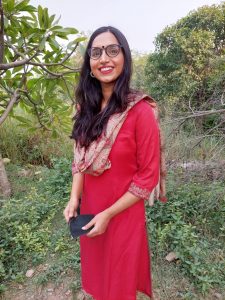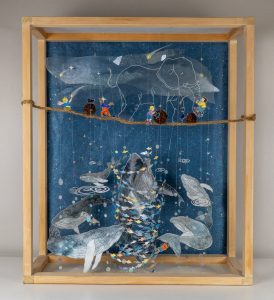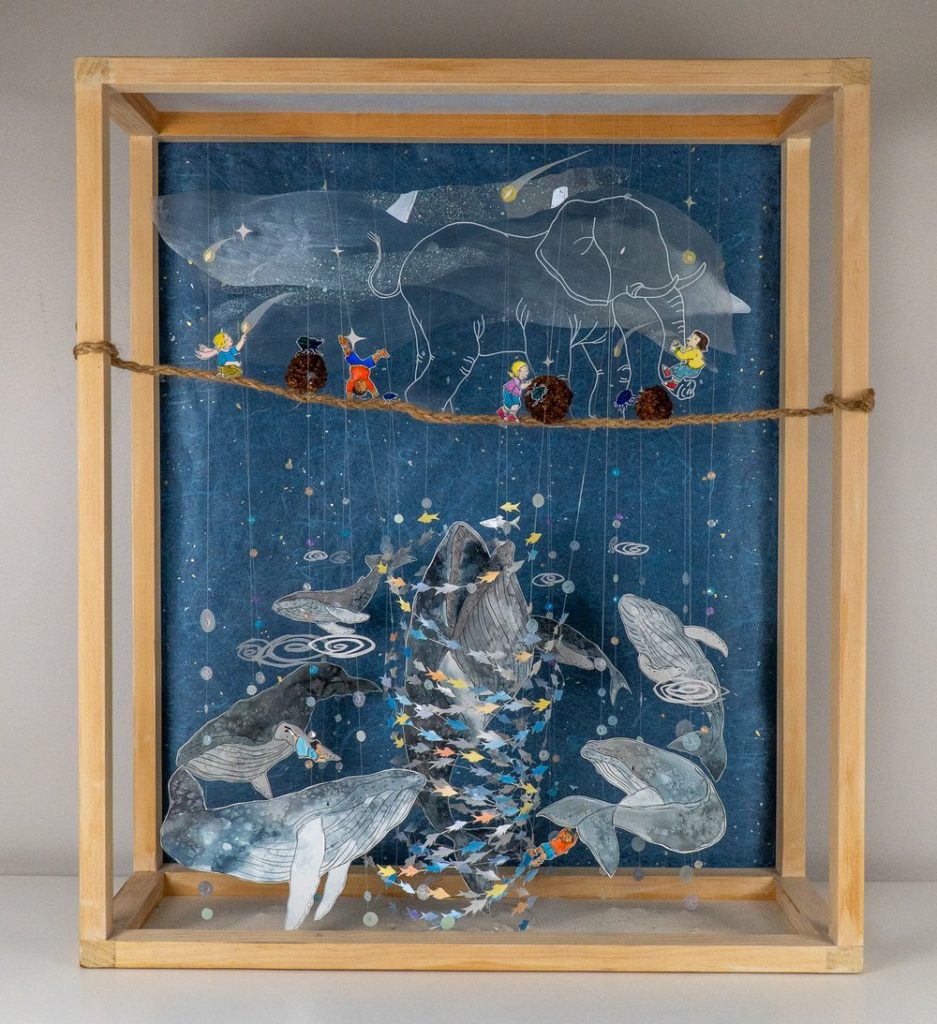CW: Mention of the COVID-19 pandemic

All my friends are sad and bright by Cameron-Awkward Rich (excerpt)
I think door & there is. Open & here’s a room
where everything you’ve lost is washed ashore.
We’ve seen the news. We know the story.
How even our bodies hurt us sometimes
so much. Room of broken mirrors. Room of salt.
Room of marigolds & it’s your party, baby
here’s a crown, here’s a gown & no man
just around the corner, all your eyes on you.(find the rest of this poem here)
In 2020, when it still felt like the pandemic could end without obliteration of the world as we know it – I described my loneliness to a group of 20-something One Future Fellows. I believed loneliness was my life’s work. “the broadest of my purposes” I called it & why shouldn’t it have been? I have spent a very large portion of my life with it.
Born a woman, in India, at a time when we are made to feel that women must pay for equal opportunities in perfection. That they must hold the top of their class, while co-parenting their siblings, learning to become adequately skilled, socialising, and doing chores, while being grateful for the chance to do it at all. I, like most women of my generation, have shaped my life in the quest of attaining the impossible.
Olivia Laing, in the first book (The Lonely City) that gave me language for what I have felt my whole life has said: “loneliness doesn’t necessarily require physical solitude, but rather an absence or paucity of connection, closeness, kinship: an inability, for one reason or another, to find as much intimacy as is desired.” The binaries the world tries to divide us into do not allow for the wholeness of a person to be seen and experienced by those around them. Parts of me that were deemed not-good by those around me – boisterous, queer, neurodivergent, opinionated, likely to say no – were tucked in the ponytail I made for school. (because bad girls have unruly hair). (more on this in the AMA section)
With time, I had to learn to stretch a hand out to the world that said: I am open for the business of belonging. I had to learn to become serious about connection – seeking it, finding it, nurturing it. In any way possible. The smallest steps were to grow plants! to befriend neighborhood cats & crows & dogs & peacocks – all of whom now recognise me (though they choose to ignore me often). I tried Bumble friends. I started a book club. I started attending group activity classes. I walked up to people at parties and started conversations. I really listened. I tried to remember. Little by little, others remembered me too. They saw me – my entire self, if only for a few hours once a few weeks. The biggest risk here was rejection. My plants could die. The cats could (did) scratch me and run away. People I walked up to rolled their eyes. I often said the wrong thing & ended up losing a lot of plants, books, and flowers in the process (my love language is gift-giving). I also received books. I received postcards that read like they knew their intended audience. All this shrunk my pie of loneliness. Once loneliness became less omnipresent, more space was created for me to occupy.
My occupying space created more opportunity for others to.
Chosen Family by Rachel Eliza Griffith (excerpt)
When you find your people you’ll still look over your shoulder sometimes
to see if you’re being followed. You’re hoping one or two people you don’t
know will want to see where you’re going. When you find your people
they won’t ask you where you came from because they’ll already know
& if they don’t they’ll be busy putting good food on your plate & asking you
if you’re hungry or broke. When you find your people they’ll tell you
to use any bathroom you want, marry anybody you want, work side-by-side
together for long hours in close quarters without any fear of being harmed…(find the rest of the poem here)
Who you invite in your community is a vital source of perspective and holds immense political power. Practically and in matters of the heart: who you know affects where you go. When our political powers fail to care for us, it is our communities that come to our rescue such as during the COVID-19 pandemic. It was only through mutual aid that my family, and so many families like mine survived that time.
A chosen family is a group of individuals who deliberately choose one another to play significant roles in each other’s lives and is essential for queer folks to thrive. When most people think of a family, they think of parents, marriage, siblings and children—a lot of these shun or are inaccessible to queer individuals in large parts of the world. This remains true for any of us whose families are sites of exclusion and, therefore, loneliness. This is where our communities step in. In light of social injustice, it is communities choosing to step up that can, if at all, protect the democratic principles.
Our social networks can sustain us, or tear us apart. Nicholas Christakis, a professor at Yale, wrote about the power of Social Networks in his book ‘Connected: How your friends’ friends’ friends affect everything you think and do’. With decades of data, he proved that emotions live in clusters of our social networks. My actions and emotions will affect those of my friend’s friend’s friend & theirs will affect me. We must put effort in social networks, study them, nurture them just as we do a family, or a romantic relationship. When Emily Dickinson died, it was her friend Mabel Loomis Todd who collected, edited, and made sense of all of her handwritten works. The only reason we know of Dickinson is because she cultivated friendships with just as much care as she did her poems.

Our world is designed to hole us up in nuclear families, isolating LED-lit cubicles, sad cab rides with the rain pattering down, not even knowing the name of the person who brings up home. The neoliberal world is full of messaging to go at it alone! you can do it all, if you try hard enough! The thing is – you don’t have to. You can ask your friends! & since kindergarten, hasn’t the world been shinier & gigglier when we have a friend to share it with? Why not choose the giggles?
